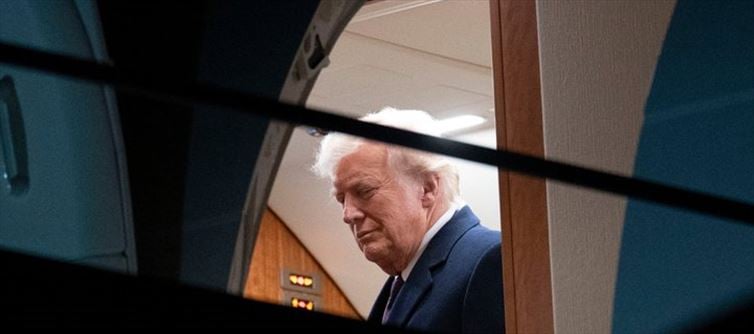
In a dramatic turn of events, TikTok users across the united states were left in the dark saturday night as the app abruptly went offline. The blackout came after the supreme court upheld a bipartisan law forcing ByteDance, TikTok’s parent company, to sell the app or face a nationwide ban. However, in true Trumpian fashion, President-elect donald trump inserted himself into the fray with a post on Truth Social sunday morning that raised more questions than answers.
trump announced his intent to issue an executive order on monday that would extend the timeline before the ban takes effect. But it wasn’t just the delay that grabbed attention—Trump floated a bizarre “deal” in which the U.S. government would take a 50% ownership stake in TikTok through a joint venture. The proposal immediately sparked controversy, with critics accusing trump of overstepping and even attempting to nationalize a private company under the guise of protecting national security.
A Return to Familiar Tactics?
The situation has drawn eerie parallels to Trump’s failed 2020 attempt to force ByteDance to sell TikTok, which many experts then described as a political stunt. What makes this latest episode even more contentious is Trump’s apparent about-face. During his first term, he championed a TikTok ban but now vocally opposes it—a move that has raised eyebrows across the political spectrum. Observers question whether Trump’s newfound stance reflects a legitimate national security concern or yet another play to court young voters and stay in the spotlight.
Bipartisan Confusion and Finger-Pointing
The bipartisan law mandating ByteDance’s divestiture, passed under President Joe Biden and upheld by the supreme court, was set to take effect Sunday. Yet, white house and DOJ officials seemed to pass the buck to Trump’s incoming administration, citing his inauguration as a reason to delay enforcement. Critics slammed this as a glaring example of political cowardice, with neither administration willing to take responsibility for a ban that had already been signed into law.
Adding fuel to the fire, TikTok issued a statement before going offline, calling out the lack of "definitive assurances" from the government that service providers wouldn’t face penalties. The app’s subsequent shutdown led to a blame game, with a white house spokesperson accusing TikTok of staging “a stunt,” while TikTok pointed fingers at Washington’s lack of leadership.
TikTok Users in Limbo
The app’s blackout came as a shock to millions of Americans who rely on TikTok for everything from entertainment to income. While trump has suggested a willingness to “work with” TikTok once in office, his vague promises have done little to reassure users or the tech industry. Many fear that his proposed solution—a government ownership stake—will not only face insurmountable legal challenges but also alienate U.S. allies and worsen tensions with China.
Controversy Brewing
Critics have pounced on Trump’s sunday post as yet another example of his erratic approach to governance. Legal scholars have already raised red flags about the constitutionality of the U.S. taking partial ownership of TikTok, while some political analysts speculate that Trump’s move may be less about solving the issue and more about creating a spectacle ahead of his inauguration.
Amid the chaos, one thing is clear: Trump’s proposed TikTok “deal” is unlikely to end the controversy anytime soon. Instead, it risks becoming yet another polarizing chapter in the saga of his tumultuous political career.




 click and follow Indiaherald WhatsApp channel
click and follow Indiaherald WhatsApp channel